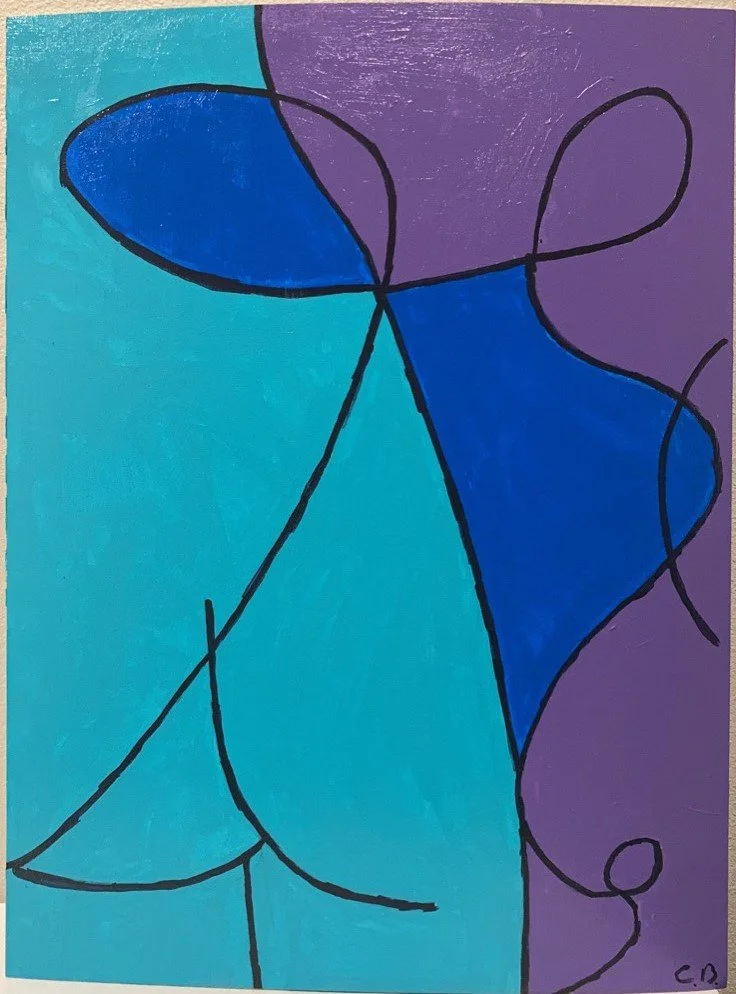by Sophia Ordaz
In Spanish, love feels multilayered, striated with gradations of romantic and platonic affection. Me agradas, me gustas, me encantas, me enculas, me enamoras, te quiero, te adoro, te amo: a shift from the intransitive to the transitive, from object to subject, materializing the intensity of the signified in the signifier—a perfect miracle of synchronicity.
In English, the verb “to love” is bloated with use. I love the drunk girl in the club bathroom like I love the feel of music coursing from speakers into my veins, thunderstorms and vitamin D, serotonin, steamy showers, and soreness coiled in my muscles, not to mention the delicious thrill of a crush’s finger resting easy on the inside of my wrist and wit, wisdom, God, gods, mangos, matcha, mota mota mota—oh my my my I’m feeling high what a day, what a day to love cardamom, cantaloupe, cocoa, kismet, carpe diem, and kindness, all those night skates, close shaves, second, third, fourth chances, in addition to the way souls peek behind eyes when they sparkle and cats melt into liquids in their owners’ arms and children laugh ad infinitum, peal after peal after peal. It’s 3 a.m., and I’m safekeeping teardrops on a friend’s shoulder. I love that and you and the weather today.
In the house I was raised in, love was more often an act than an utterance. I love you swims off the tongues of blue-eyed Brady Bunches on TV, but it used to flop out my mouth, ugly, writhing for life under the tranquilizing magnitude of the phrase. Not anymore—I switch between connotations like languages, revel in the power of words as love acts unto themselves.
These are my parents’ I love yous: fresh-cut fruit; rice and beans; carefully picked-over secondhand clothing; my mother’s feet, swollen from cleaning houses; her teaching me to read in Spanish, sleep weighing down her eyes; my father staying up all night to help with my homework; the way he could fix anything broken in the house, even my spirit; every time the two of them didn’t want to play and I thought they were mad but they were actually tired; how they left every single thing they knew for a country where they’d forever be racialized; and how they always tried, tried, tried, even as the distance between us gaped, my father’s quiet and my mother’s face asking, “When did my flesh and blood become so foreign to me?”--an uncrossable border fated to exist long before countries claimed shapes.
Mamita, I am an immigrant in your birth country, you are an immigrant in mine.
But I need you to know I am more a citizen of you, my mother-land, than any nation-state.
My parents’ love acts shout I LOVE YOU, TE QUEREMOS MÁS QUE LA VIDA. -Los quiero más, I’d say as a child, stretching my arms as wide as they could go to quantify just how much I loved them more, which was an impossible thing to say but now I know we can’t stop ourselves from saying impossible things out of love.
When you love someone like I love mis jefecitos, more than life itself and the stretch stretch stretch of a child’s wingspan, which is all your being can hold and all your mind can comprehend, you are a willing interpreter of love languages.

